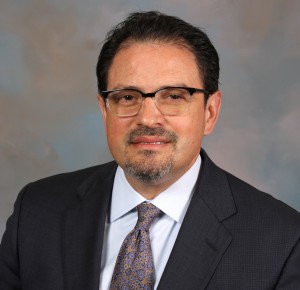 Immigration has surfaced as one of the top issues in this Republican presidential primary — thanks in no small part to the United States’ ever-growing population of Hispanics, now the country’s second-largest group.
Immigration has surfaced as one of the top issues in this Republican presidential primary — thanks in no small part to the United States’ ever-growing population of Hispanics, now the country’s second-largest group.
Despite the voting power of this sizable bloc, the Republican candidates haven’t distinguished themselves as friends of immigrants. Former Massachusetts Governor Mitt Romney and former Pennsylvania Senator Rick Santorum have effectively called for mass self-deportations. Both Romney and former House Speaker Newt Gingrich have said that they would not grant citizenship to college graduates who are the children of undocumented immigrants.
Such anti-immigrant posturing attempts to divide this country into two groups: “real” Americans — whatever that means — and those who are somehow inauthentic. These divisions don’t just marginalize entire groups of people who call America home — they tacitly authorize the powerful to disregard the rules of civil society.
The first group’s attitudes have driven the introduction of anti-immigration laws across the country, including, for example, the controversial new state laws that have caused many Hispanics — both documented and undocumented — to leave these states. Such legislation is playing out against a backdrop of the Tea Party’s divisive rhetoric, which has pushed the national debate far to the right. Toxic attitudes cannot, unfortunately, be confined; they have a way of spreading to the rest of society.
Some in the Tea Party movement may be genuinely motivated by concerns about the economy or social issues. But the movement has also given shelter to activists who feel the need to cast others as different and unworthy in the face of the demographic shifts the United States has begun to experience.
The country’s past is replete with examples of what can happen when some Americans begin to think of themselves as entitled. In August, an especially unsettling case came to light after being buried for more than half a century.
Between 1946 and 1948, the U.S. Public Health Service conducted experiments on hundreds of Guatemalans, who were intentionally infected with sexually transmitted diseases to test the efficacy of penicillin — without informing the subjects of the risk.
Worse, this was not the first time the U.S. Public Health Service had engaged in such unethical practices. Similar experiments had also been conducted on African-American men, beginning in the 1930s, in Tuskegee, Ala. Those experiments didn’t end until 1972, as a result of legal action and national publicity.
How could the United States, the leader of the Free World, which had just emerged victorious from World War II, secretly countenance such disregard for the lives of a neighboring nation’s citizens — not to mention its own?
The experiments took place even as the nation was publicly launching the Marshall Plan — one of history’s greatest humanitarian efforts — to rebuild Europe in the wake of the war.
Wasn’t this the America of the “Greatest Generation,” the one that created the biggest middle class the world had ever seen, broadened access to higher education, built an extraordinary interstate highway system, and grew a powerful manufacturing sector during what would become known as “The American Century?”
It happened because some Americans came to believe that there was one set of rules for the privileged and another for everyone else.
This was the America that used its military and covert forces in Central America to protect U.S. corporate interests during the 1950s. It was the America that did not guarantee the right of its black citizens to vote until 1965.
This was an America that felt it could act with impunity when it came to poor Spanish-speaking foreigners, just as it felt it could act without restraint within its own borders when it came to the rights of its own disenfranchised black citizens.
The government has a duty to protect its citizens, even from itself.
This is an America we cannot allow ourselves to be again. The challenge in this still-new century is for Americans to embrace the changing world they face and to appreciate the strength — and, yes, exceptionalism — that can emerge from a genuine, in the words of President Reagan, “shining city on a hill.”
Gus K. West is the Board Chair and President of The Hispanic Institute (THI), and co-Chair of the Hispanic Technology and Telecommunications Partnership (HTTP). He has been involved with governmental and political life for more than 20 years, beginning with serving the Nevada State Assembly as Assistant Sergeant At Arms, and then the City of Las Vegas as a Senior Management Analyst. Mr. West later went on to serve at the United States Department of Commerce in the Administrations of Economics and Statistics, Economic Development, and International Trade. Find out more about The Hispanic Institute (THI) at thehispanicinstitute.net.

Recent Comments